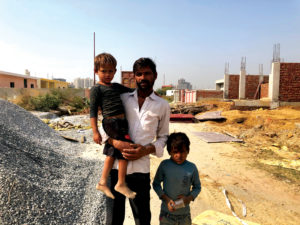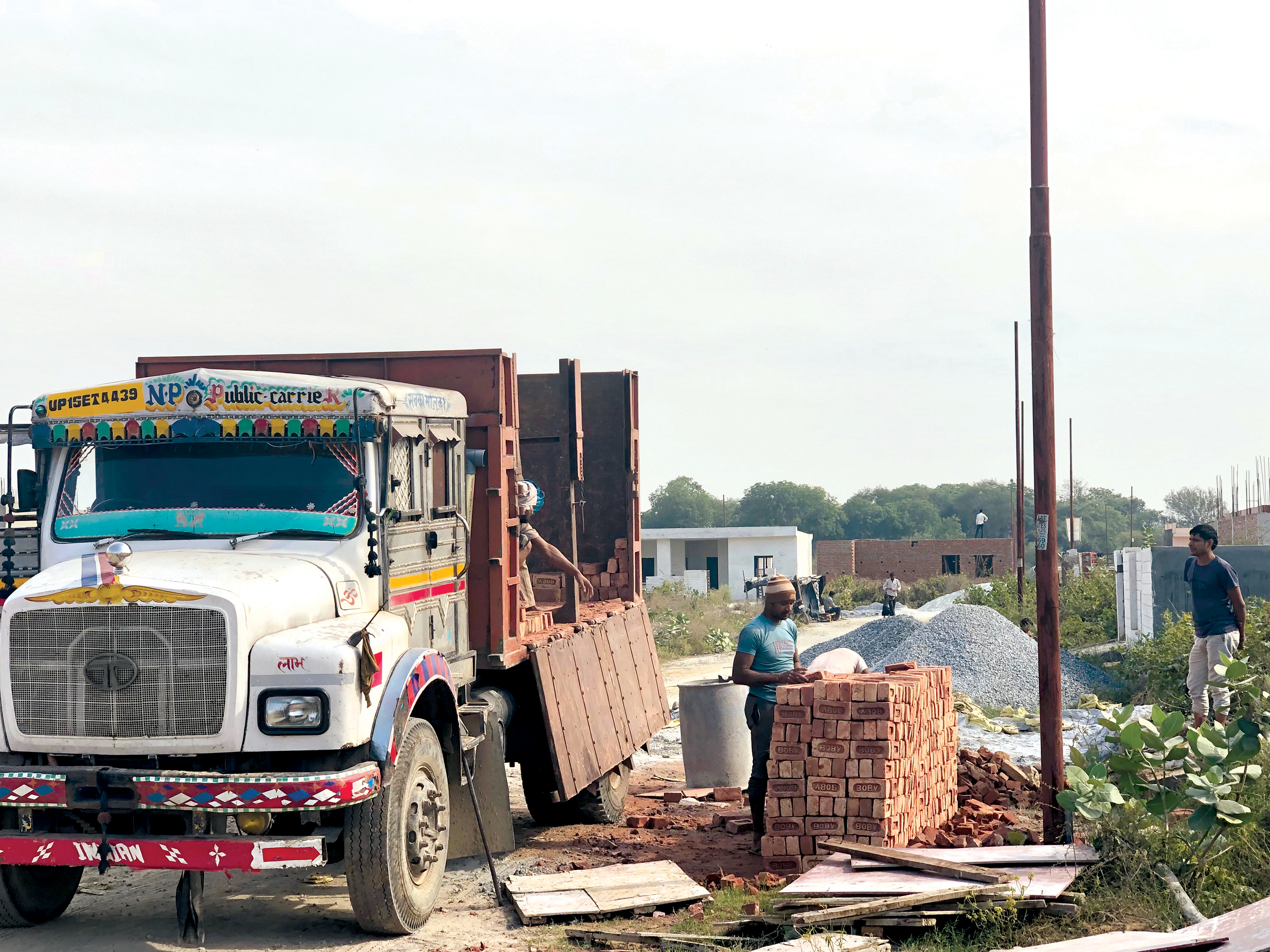How labourers are mentally caged, alienated and dehumanised in this civilised world
Rehan Khan, a labourer from Bihar made news while he jumped inside the lion’s cage in the Delhi zoo. The psychological problem which made him do this was overlooked by the majority and he was dismissed as “mentally ill”.
The video which went viral on social media showed Rehan sitting in front of the lion and uttering some words. The lion did not attack Rehan. The zoo staff had to eventually tranquilise the lion to get Rehan out of the cage.
None saw the mental cage where he was locked due to alienation and joblessness. A resident of Pathan Patti in Bihar, Rehan lost his father Nabi Hasan a few years ago and is survived by his mother Sayyada Khatun and brother Rizwan. The responsibility to earn bread for the family has been mounting on the two brothers and Rehan came to Delhi in search of work. While staying with his uncle Shams Khan in Gautam Vihar in North-east Delhi, Rehan used to wander in the city. He was mentally disturbed but his family did not take it too seriously. The incident at Delhi zoo shocked them.
Take another case. Raees, a migrant labourer from Araria district in Bihar, came to Delhi-NCR almost two decades ago with only two sets of clothes and a hope that he could earn enough to support his family as a mason in construction. When asked why is it that most people of the labourers of Uttar Pradesh and Bihar have to migrate, Raees said “Unem-ployment and zero opportunities for unskilled people forces us to leave our hometown. Farming never yields enough when a dozen risks are involved.”
The biggest risk, Raees says, is the flood which leaves no option for daily workers or farmers except to migrate to Delhi, Jaipur, Mumbai among other cities. “Floods destroy our crops and vegetation. This year also, all our crops were decimated in the floods and no substantial relief was provided by the government. Our income and savings are the agricultural land, and whenever floods happen, the entire family comes under great pressure. Tension overwhelms the elders,” says Raees, who currently works as a mistri in Delhi and Noida.
The earnings of the labourers is on a daily wage basis. They get trapped in order to earn more, and start working at different sites, which needs exertion of body, mind and soul. However, it’s the satisfaction of their children who are able to eat and study which makes them work hard but the tension alienates them from the outside world. They work in a mechanical way instead of upgrading their skills.

Raees earns Rs 600 per day and sends around Rs 10,000 per month to his home back in Araria. “Monthly earning turns out to be around Rs 15,000-20,000 but who can survive in this in Delhi-NCR, when a chunk is also sent back to my home town. I have five children, out of which one girl got married and the other four are studying in school in Araria. I am the sole bread earner and I get suicidal tendencies whenever flood destroys our crops, because our family income disappears. Somehow we manage every month. But when such calamity happens, even I have to go back. No work means no wages,” details Raees who is always hopeful that flood will not affect his family this year.
In the distant Greater Noida, a lot of concrete jungle is under construction and a 360-degree glance shows you societies, buildings, houses and trees. In a factory works 37-year-old Kamal Chaudhary who belongs to Mahoba district in Uttar Pradesh. “I came to Delhi in 2001 as employment was almost nil in my district. Nobody wants to leave his/her family and home but it’s the survival instinct which makes us do things; it’s never easy to start in an unknown city with no relatives and acquaintances but at least today I have a shirt and pant to wear. When I came here, I only had banyan and lungi,” claims Chaudhary, who works as a plaster mistri at sites in Greater Noida.
Giving details about his income and his family, Chaudhary says, “I earn Rs 15,000 a month. I have two children and my wife here in Noida. Both the kids go to private school and certainly the amount is not enough to make ends meet in this metro city. School fees, rent, food other expenses make it almost impossible to make a living.”
When asked about the way out, Chaudhary says, “We eventually have to take loans from thekedars or other sources. Paying it back becomes the priority. I had taken huge loans at one point of time, but currently I have paid it back. Another way out is to cut down on unnecessary expenses — and eat dal-roti every day.”
When asked about the sub-human conditions in which labourers live and their addiction to alcohol, Chaudhary says, “Almost half of the labourers here are under stress. Most of them are suffering from hypertension but it never stops them from working because there is no other option. They think alcohol is their best friend but actually it is their biggest enemy.”
Chaudhary was sad as he is unable to send money back to his home in Mahoba where his parents, and two younger brothers reside. Back in his village, everyone is dependent on farming. Chaudhary claims that this year, due to excessive rain, they could not harvest a single crop and all got destroyed. In the midst of dark clouds, Chaudhary is still able to see the silver lining and says “My children will get educated and eventually work in some company. I did not have opportunity to go to school but we are doing all the hard work for them. At times, I think of leaving everything and running away but we are resilient by force not by choice.”
Working at a site near Stellar housing society in Greater Noida is 32-year-old Ratiram who is busy consoling his three-year-old daughter as she is crying for some reason. Ratiram has also migrated from Mahoba district but he says that work was available back home but wages were not paid on a regular basis and sometimes he got into debt.
“I used to work as a farm labourer in Mahoba but the wages which were already quite low were not paid by the owners on a regular basis and it frustrated me a lot. I decided to come to Delhi in search of work with my wife and three kids but here the story of struggle was different. I got to work at a construction site but the monthly expenditure was much more than expected,” said Ratiram, who only wants his kids to study well and start supporting his family.
Earlier, two of his kids used to study here in Delhi but as he keeps migrating in NCR itself for the work, he sent them back so that they could have some stability. Here in Delhi, Ratiram earns around Rs 500 per day while the wages in Mahoba was Rs 300 and that too at the mercy of the contractor or owner.
While interacting with his daughter Rinki, Ratiram related an anecdote about the first time she went to school in Noida. “Rinki’s class teacher slapped her for some reason on the first day itself. Since then, she has resisted going to school,” he says. Now Ratiram plans to send Rinki back to Mahoba for studies as she will be four in January but the real reason he claims is tension over “money and living.” “We are living with a lot of burden on ourselves. Sometimes, the tension is so much that we are unable to sleep at night. It’s tough being a labourer and the mental pressure is always at its peak but we somehow manage. Still, 40-50% labourers are trapped in alcoholism and other vices,” said Ratiram.
It’s the smile Rinki’s face which fills him with joy and that is the source of his energy. Little does she know how much stress her father is undergoing, caged inside his mind due to the cycle of work and several responsibilities.





